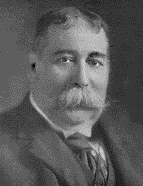

Oliveira Lima endeavoured to keep in tune with the trends of Brazilian historiography in the Brazilian Historical and Geographical Institute. His main reference was Francisco Adolfo de Varnhagen and his História Geral do Brasil [General History of Brazil]—not so much in terms of method, but in his treatment of the decisive question of the definition of Brazilian nationality. From a favourable interpretation of Portuguese colonisation—seen from another angle, that of the construction of a Brazilian nation—he presented Independence as a continuation of Portuguese Brazil. His praise of Portuguese colonisation allowed him to advance in his rehabilitating theses of King João VI and to abandon the Portuguese historiographical approach that had disparaged the monarch's actions since the Napoleonic invasion of Portugal. It should also be noted that the dialogues with Capistrano de Abreu led to an appreciation of travellers' accounts as sources for Brazilian history studies. The historian of the Brazilian Empire wrote about the theme of nationality in many of his works, such as Formação histórica da nacionalidade brasileira [Historical Formation of Brazilian Nationality], O movimento da Independência [The Independence Movement], and D. João VI no Brasil, [King João VI in Brazil], which are significant for this interpretation.
One of the themes chosen for his historical works was diplomatic history, which was the name given to the History of International Relations at the time. As a result of his role in the Ministry of Foreign Affairs, he wrote works on Brazil-USA relations, taking a critical view of Pan-Americanism. Both issues were on the agenda of Brazilian foreign policy at a time when, after the Republic (1889), there was a transition from the European orbit of influence to that of the United States. He was notable for confronting the guidelines printed by Rio Branco and defending Brazil's integration with Latin America from a Bolivarian perspective. Some works in which he dealt with this subject, in addition to the myriad articles, include Nos Estados Unidos [In the United States]; História diplomática do Brasil – o reconhecimento do Império [Diplomatic History of Brazil - The Recognition of the Empire]; Panamericanismo: Bolivar-Monroe-Roosevelt [Panamericanism: Bolivar-Monroe-Roosevelt] and América Latina e América Inglesa [Latin America and English America] .
This work is financed by national funds through FCT - Foundation for Science and Technology, I.P, in the scope of the projects UIDB/04311/2020 and UIDP/04311/2020.
